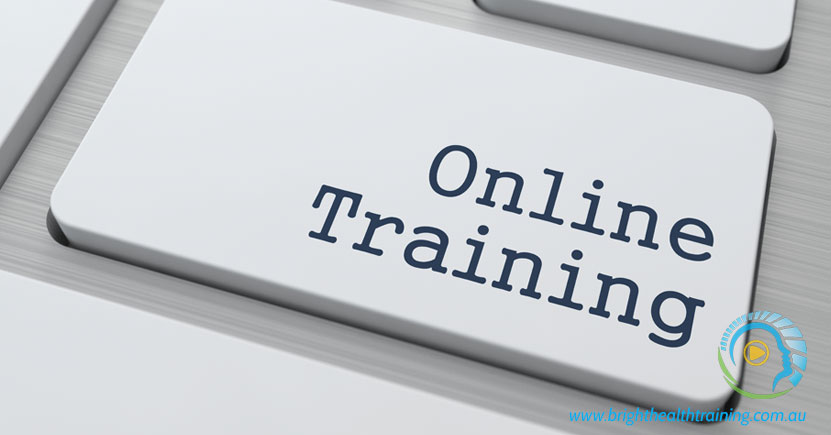The Australian remedial massage industry is coming to terms with new trends and technology in education, namely the Internet. I recently read an article in which Whitney Lowe, a respected remedial massage therapist in the US, discussed some of the myths of online education. We’ve just launched our first online CPE course, so I thought I’d chime in on the discussion.
Manual Therapies online?
The Diploma of Remedial Massage, the entry level course for Remedial Massage, is available online from a number of education providers. However, these courses are not recognised by industry associations to become a member and receive private health fund recognition.
For registered professions such as Osteopathy, Physiotherapy, Acupuncture and Chiropractic, there is only a small number of subjects that can be studied online and for good reason, who would want to be needled by an Acupuncturist or have their neck manipulated by a Chiropractor who was trained online? Not me, no thanks!
Open online education
The big trend in education is open courses, viewable by anyone anywhere around the world. Examples are MIT, Harvard and Yale universities in America. (See also edX.) From a remedial massage perspective, it is worth considering how online education will affect our profession in the future.
My current opinion is that entry level training (the base qualification) for remedial massage therapists should remain on campus until quality can be assured. Methods of training that include an apprenticeship model of training combined with online training and in-person assessment, may one day become commonplace, especially in remote and regional areas where access to training isn’t available.
However, for trained professionals participating in ongoing professional development, online is a suitable medium and a great option to have.
“So convince me… what’s so great about online education?”
If we look at continuing professional education (CPE), there are many benefits to online training. Some of the simple reasons are;
- You can do it almost anywhere – with mobile and laptop devices, education can occur practically anywhere, even in your own clinic space! The main thing holding us back here is the lack of reliable, total coverage of high speed internet. Given the current troubles of the NBN, this won’t be solved anytime soon.
- You can learn when you want to – we are all busy these days, how much spare time do you have for CPE courses? (Someone I know just drove down from Bundaberg to Brisbane for the weekend to do training course, leaving her clinic closed and her three children with hubby for the weekend. That would take some organising and is a considerable trade-off to attend a training course, right?)
- You can review/watch the material if you miss something. How many times have you missed a critical piece of information in a lecture or lesson, or just misunderstood what was being said? Online, you can press rewind and watch the lesson again.
- You have the flexibility to complete the content in one session, or several shorter sessions. This is useful if you only have a few minutes between patients or clients! Online training allows you to watch a few minutes at a time, digest the information and come back for more later. You can’t do that at a workshop or course.
- Online course are typically cheaper and this is great news for everyone. Online usually means lower overheads for providers and the savings can be passed on to the customer.

The myths of online education in massage
There are other issues and myths to consider with online training and for postgraduate manual therapists. Whitney’s article addresses these and I highly recommend reading the article I linked in the introduction of this post. The article was published in America’s Massage Today online magazine.
To summarise very quickly, Whitney busts the following myths:
- ‘Kinesthetic’ learners can’t learn effectively online. On the contrary, there really is no such thing as purely ‘kinesthetic’ learning, as we learn through all 3 channels (visual, auditory and kinesthetic). Also, much of the content for manual therapists is cognitive anyway.
- Online learning is impersonal. It doesn’t have to be, not when the instructor is personally involved in presenting the course online. Students may in fact feel more comfortable raising questions with the instructor online, as opposed to a traditional classroom. I’d also add, at Bright Health Training we actively encourage participation from our students through comments on each of our lessons, to which I always personally reply!
- Online is too passive. Not if simulations, scenarios and problem based learning is employed. I’d also add that interactive video, mobile and other emerging technologies allow online courses to engage students in ways that traditional classrooms cannot.
- Massage is unique and online doesn’t work in our field. This myth is perpetuated by the powers that be, and ignores the fact that many other professions in health and fitness have already embraced and implemented eLearning.
- The quality of most online courses is low. Whitney accepts that there is some truth to this claim, as I do. I’d argue that the potential for poor quality of courses is of equal concern online as it is offline in traditional classrooms. I discussed some of the issue surrounding quality and the industry response in this post. Online providers should look to the Associations for accreditation of their online courses to ensure that standards are raised.
- Note : Whitney Lowe is a massage therapist and educator in the massage therapy field and author of an excellent text called “Orthopedic Massage: Theory and Technique”. This was one of the first texts written in the massage field that approached massage from an assessment and treatment paradigm, not a “one size fits all” sequence style of treatment. The text is currently in its second edition and I highly recommended reading it.
Hands on, online?
So can we provide an effective and high quality online learning experiences for remedial massage therapists? In the context of continuing professional education, I believe it can be done, and that’s why Bright Health Training is entering the online space, to bring quality CPE courses to remedial massage therapists. We’re embracing technology, are you?

